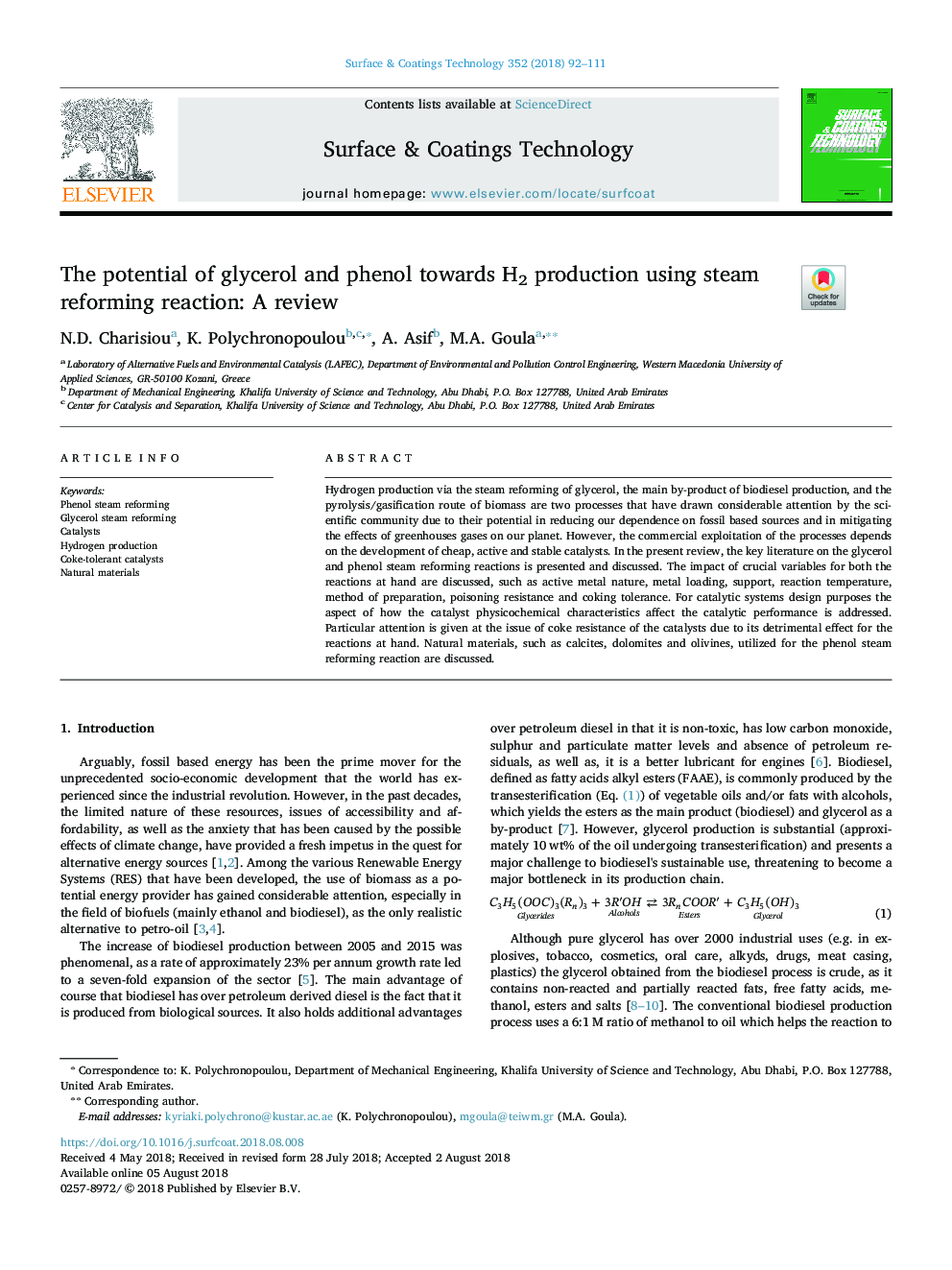| Article ID | Journal | Published Year | Pages | File Type |
|---|---|---|---|---|
| 8023179 | Surface and Coatings Technology | 2018 | 20 Pages |
Abstract
Hydrogen production via the steam reforming of glycerol, the main by-product of biodiesel production, and the pyrolysis/gasification route of biomass are two processes that have drawn considerable attention by the scientific community due to their potential in reducing our dependence on fossil based sources and in mitigating the effects of greenhouses gases on our planet. However, the commercial exploitation of the processes depends on the development of cheap, active and stable catalysts. In the present review, the key literature on the glycerol and phenol steam reforming reactions is presented and discussed. The impact of crucial variables for both the reactions at hand are discussed, such as active metal nature, metal loading, support, reaction temperature, method of preparation, poisoning resistance and coking tolerance. For catalytic systems design purposes the aspect of how the catalyst physicochemical characteristics affect the catalytic performance is addressed. Particular attention is given at the issue of coke resistance of the catalysts due to its detrimental effect for the reactions at hand. Natural materials, such as calcites, dolomites and olivines, utilized for the phenol steam reforming reaction are discussed.
Keywords
Related Topics
Physical Sciences and Engineering
Materials Science
Nanotechnology
Authors
N.D. Charisiou, K. Polychronopoulou, A. Asif, M.A. Goula,
